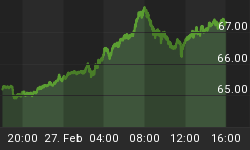While there was mixed news in this morning's labor market data for December, the markets focused on the latest Bank of England (BoE) Quarterly Inflation Report which had one unambiguous message - interest rates will have to go up once more this cycle, if the BoE is to meet its inflation target.
The report stated that inflation would fall to 2.0% in two years' time assuming one more hike in interest rates. If the repo rate stays at the current 5.25%, then inflation will overshoot the target. Governor King was equally unequivocal: "the path of interest rates assumed for this projection is about 25 basis points above current rates."
The governor noted that the inflation outlook over the coming year is "highly uncertain," citing shifts in domestic gas and electricity prices - which have recently fallen sharply - as well as concerns about fluctuations in global oil prices. He also hinted that the housing market may be on the verge of softening - which would be "a welcome development" - but warned that it is too early to tell whether or not wages will go up.
Data today showed that wages rose a less-than-expected 4.0% on the year in the October-December period, down slightly from 4.1% in the three months to November. On the other hand, claimant-count unemployment dropped by 13,500 last month, the largest monthly decline in nearly three years, taking the claimant-count jobless rate down to 2.9%. The EU-harmonized unemployment rate remained at 5.4% for the sixth consecutive month in December. The data generally support the BoE's Quarterly Inflation Report comment that the recent period of labor market loosening may be coming to an end.

Yesterday's inflation data showed that the annual pace of price increases dropped sharply from the 3.0% peak seen in December to just 2.7% in January, as consumer prices actually fell 0.8% on the month. The pull back was largely the result of falling fuel costs.

The only question now is when the BoE's Monetary Policy Committee (MPC) will take the repo rate up to 5.50%. January's rate hike was the result of a very close 5-4 vote. We will have to wait for the minutes of the February 8 policy meeting, which will be released February 21, to see whether the perspective of any of the members has started to shift. Given the closeness of the January vote, and the uncertainties about the near-term inflation and demand outlook, our best guess is that the Committee will not be tightening again until the May 10 meeting, but April 5 remains a possibility. The Minutes on February 21 should give some clues; otherwise it remains a case of "watch the data."















